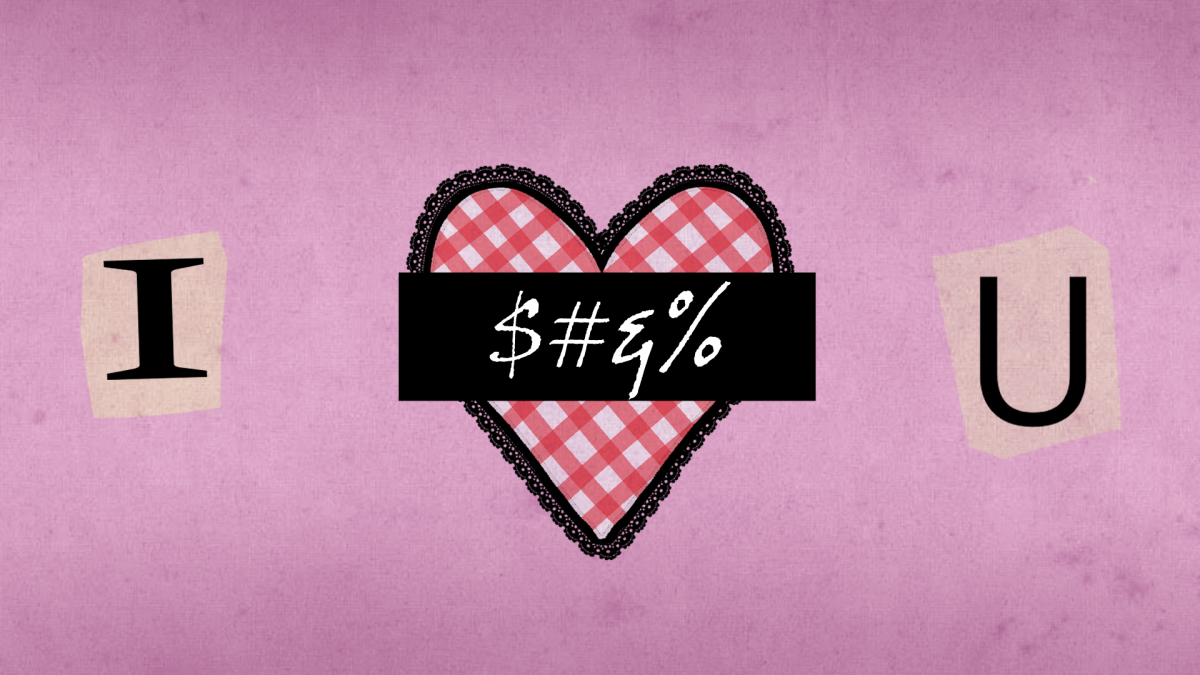Words have power. They start and end wars, inspire generations and expand knowledge. And — sometimes scariest of all — they express our deepest vulnerabilities.
Some of the most powerful words, like “I love you,” leave a lot of us cowering and hesitant.
More and more often, I come across the objectification of love. We stick to rigid timelines, aim for unrealistic expectations and try to put love into a one-size-fits-all box. Think of the “three-month theory” or “If he wanted to, he would” comments.
We overanalyze love like we overanalyze everything else — and it makes sense.
We live in a world of gray areas and overwhelming amounts of information, words bombarding us day in and day out. We analyze the world around us to the extent that it’s unnatural; never in history have we had so much information readily available.
Honestly, scrolling through Instagram or TikTok can feel like Sisyphus and the boulder. To deal with it, our ever-human minds turn to categorization. We create objectives for how to integrate this information into our lives.
We constantly compare ourselves to “perfect” couples and influencers who seem to have it all figured out. We try to fit the internet’s social rules into our worldviews.
In the process, we try to define the most undefinable thing in the human experience: love.
Who should say “I love you” first? When is it “OK” to say it? How should we say it?
We focus so much on the “right” way to do things rather than actually just doing it.
It’s the exact reason we’re such a lonely generation. We crave connection and reject the vulnerability necessary to achieve it. We spiral in our heads with situationships and worry about commitment.
A relentless self-consciousness holds us back; we fear being rejected as ourselves. You can’t filter or edit your soul.
Love becomes a daunting task, an almost impossible maze. It’s hard to be a 20-something but it’s even harder to be a 20-something and faced with love.
We expect so much from the word “love,” but it doesn’t mean it’s unapproachable. Because love is so undefinable, in practice, it can easily be more freeing than it is frightening. The only way you can love is simply by loving.
We’ve lost our tenderness — not just in romance but in all of our relationships too. To say “I love you” is to offer tenderness to another, all the while requiring a distinct self-reflection. You have to sit with yourself quietly amidst the onslaught of information and feel. You need to look at yourself.
Tenderness is not weakness. It’s courage.
It should be offered to your romantic partner but also to your friends. To your family. To yourself. There is a reason that the pen is often compared to the sword: words are some of the influential tools we have at our disposal. To use them is a gift, especially when it’s for good.
Some of the great stories that have endured for centuries have been stories of love. Stories, I may add, of professed love.
Romeo and Juliet didn’t twiddle their thumbs and play hard to get over text for five months.
Mr. Darcy in “Pride and Prejudice” was a little dramatic, saying, “You have bewitched me body and soul, and I love, I love, I love you” after prancing across a dewy morning field, but he was honest, and he and Elizabeth Bennet bickered a little less after that.
Love will always be scary; it’s a risk and a sensitive one at that. But to engage the human spirit is to be courageous — and tender.
Say “I love you” and mean it. Feel it.














